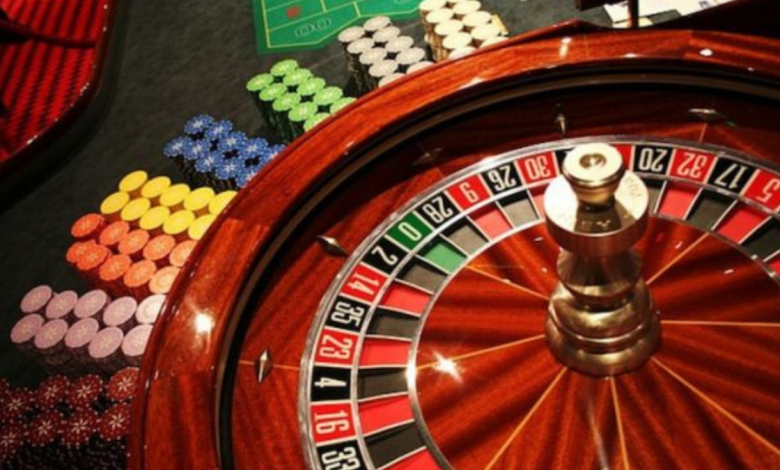The Gambler’s Fallacy: Why It’s So Dangerous

The gambler’s fallacy is a dangerous misconception that can lead to poor decision-making in high-stakes environments like gambling and investing. This fallacy occurs when people mistakenly believe that the outcome of a random event is influenced by previous events, despite each event being independent. It’s a cognitive bias that can lead to unnecessary risks, financial losses, and irrational behaviour.
What is the gambler’s fallacy?
At its core, the gambler’s fallacy is the belief that previous events in a random sequence can influence the outcome of future events. This is particularly common in gambling scenarios. For example, if a roulette player has experienced a series of losses, they may wrongly assume that a win is “due” to happen next. This belief is not based on any factual probability and is rooted in faulty reasoning.
A Classic Example
Imagine a player betting on black in roulette. They’ve lost several times in a row, and as a result, they believe that the ball will land on black soon. However, this is a classic case of the gambler’s fallacy. The roulette wheel doesn’t remember past spins, and the odds for each spin remain the same. The fallacy leads to overconfidence, pushing the gambler to make larger bets based on a false assumption that their chances are somehow improving.
ALSO READ: Can Hypnosis Cure Gambling Addiction?
Why is the Gambler’s Fallacy So Dangerous?
The real danger of the gambler’s fallacy lies in how it distorts decision-making. People who fall prey to this fallacy often risk more money, time, or resources than they can afford to lose, simply because they believe past events will influence future ones. This cognitive bias can have significant consequences, especially in financial matters.
Financial Implications
In gambling, the gambler’s fallacy can lead to mounting losses. Gamblers, driven by the belief that a win is inevitable after a series of losses, may continue to gamble even when they’ve exceeded their limits. According to Dr Neil Clark Warren, a psychologist specialising in addiction therapy, “This type of thinking creates a dangerous cycle of chasing losses with more significant and riskier bets.” This pattern often leads to financial distress and deepens the addiction to gambling.
In investing, the fallacy can also be harmful. Some investors believe that after a series of gains, a market downturn is inevitable, or conversely, that a decline in stock prices will soon reverse. This faulty logic can lead to premature sell-offs or missed investment opportunities, undermining sound financial planning.
Cognitive Biases Behind the Fallacy
The gambler’s fallacy is connected to several cognitive biases. The representativeness heuristic is one such bias, where people make judgements based on how closely something resembles a familiar pattern. In the case of gambling, a series of losses might be mistakenly seen as a “streak” that is bound to be broken.
Another key bias is the illusion of control. This happens when individuals believe they can influence outcomes that are entirely random. Gamblers often think they can “control” the wheel or predict outcomes based on their choices. This illusion leads them to take unnecessary risks, as they believe they can alter the course of events in their favour.
How to Avoid Falling Into the Gambler’s Fallacy
Understanding the gambler’s fallacy and being aware of its impact is the first step in avoiding it. Here are a few strategies to help reduce the risk:
1. Learn the Basics of Probability
A clear understanding of probability can help you recognise when you are falling for the gambler’s fallacy. Knowing that the odds of a coin toss, for example, remain 50/50, no matter how many times heads or tails appears, can help dispel the fallacy’s influence.
2. Be Critical of Your Assumptions
Whenever you find yourself thinking that a win or loss is “due” after a series of outcomes, pause and reflect on the reasoning behind that thought. It’s essential to remind yourself that each event is independent, and past outcomes do not predict future ones.
3. Set Limits and Stick to Them
Whether you’re gambling or investing, it’s crucial to set clear limits and avoid chasing losses. Having a strict budget or financial plan in place will help you make more rational decisions and avoid making emotional bets based on false assumptions.
READ MORE: How to “Trick” Your Brain into Smarter Bets
The gambler’s fallacy is a cognitive bias that can distort judgement, leading individuals to take unnecessary risks in gambling, investing, and even everyday decision-making. Understanding how this fallacy works is essential for avoiding the pitfalls associated with it. By educating yourself on probability, challenging assumptions, and setting limits, you can make more rational, informed choices and avoid the dangers of the gambler’s fallacy.




